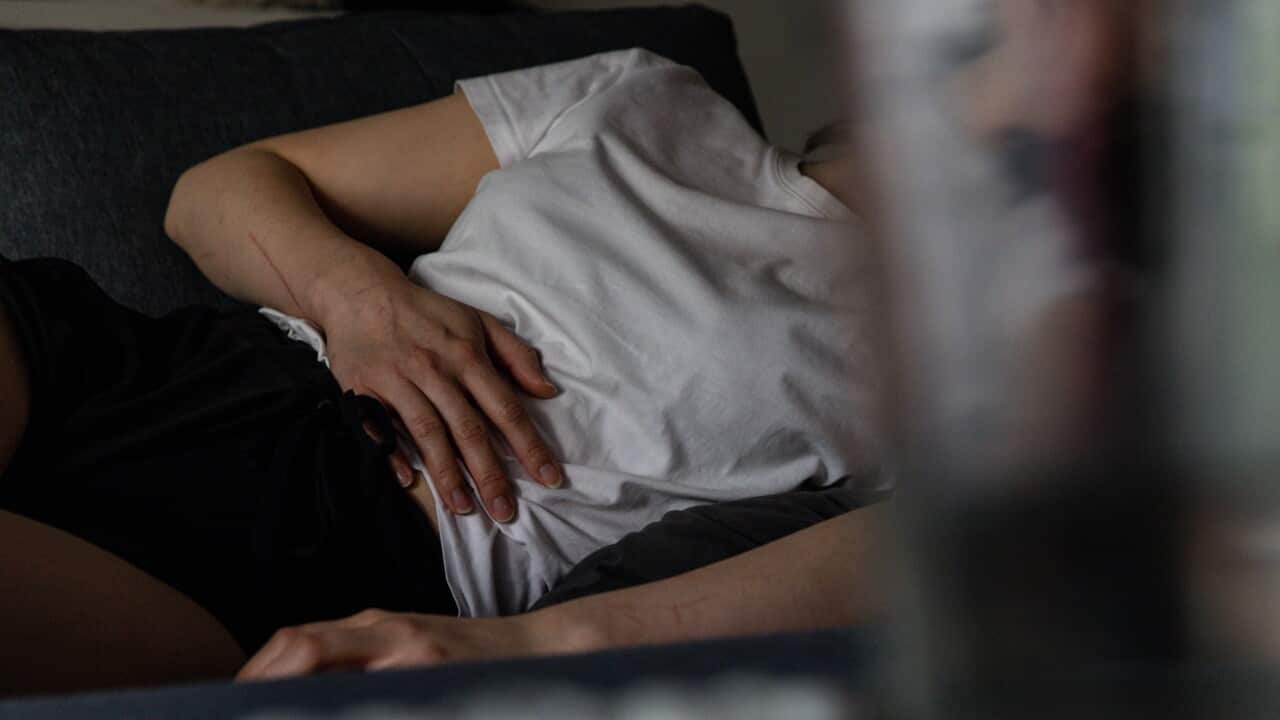Lauren Jeffries was waking up daily with debilitating pelvic pain and fatigue, unsure exactly what was wrong, and her family members were concerned she "always looked unwell".
At age 21, she was diagnosed with endometriosis, a chronic condition that can cause pain and infertility.
Endometriosis occurs when the tissue lining the uterus grows outside the uterus, sometimes on other organs. It causes inflammation, scarring, and painful adhesions that join together pelvic organs that are normally separate.
It's estimated around one million Australians live with the condition. It is responsible for as many as 40,000 hospitalisations every year, with that figure increasing by about 40 per cent just in the last decade, according to the federal government.
On average, people wait seven years to get diagnosed, but Jeffries, now in her 30s, says she was relatively lucky to only wait six months for a diagnosis.
"It's been very frustrating mainly due to the general lack of education from the general public and also having to wake up every day in pain and just think this is how life is and how it is supposed to be," she said.
"I just remember waking up one day and I sighed really loudly and said this is just how it is now. But I said it was never going to get in the way of me living my life."
'Too many suffer in silence'
Jeffries has been taking Visanne, a medication that costs around $800 a year.
The federal government on Sunday announced it will be now subsidised through the government's Pharmaceutical Benefits Scheme, reducing its cost to around $380 a year, or $90 for pension and concession-card holders.

Lauren Jeffries says she has been pain-free since taking endometriosis medication Visanne. Source: Facebook
Health Minister Mark Butler said endometriosis was becoming more widespread and more debilitating.
"Too many women have been made to suffer in silence," he said.
Even after surgery for the condition, patients will rely on medication and ongoing treatment.
Endometriosis 'still shrouded in mystery'
Jeffries had surgery after her initial diagnosis to remove some of the tissue and she said the medication has likely prevented her from needing further procedures.
"Even if it helps one woman, it would be worth it because ... it's been life-changing for me," she said.
"I really don't suffer from pain any more and I live a mostly normal life."
Syl Freedman, a co-founder of EndoActive, welcomed the announcement and called for more public health campaigning to raise awareness of the condition.
"Endo remains taboo and continues to be shrouded in mystery," Freedman said.
"Although awareness has been improving, there are still significant gaps. We need ongoing education and support to ensure women are not continuing to suffer in silence."












